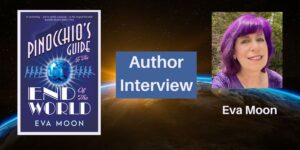Scroll Down to Read Part I
How has being a writer differed from your life as a scientist, veterinarian, and teacher? Do you find that you use very different skill sets in each of your careers? Or do they work together?
I don’t know that I can separate being a veterinarian, scientist and teacher. When I was in practice I was teaching clients how to best care for their animals and/or teaching about the illness or injury that brought their animals to me. My scientist career was focused on creating new knowledge. An important part of that was communicating what I learned.
I was always preaching to my graduate students and faculty members, after I became a department head: “If you don’t write it up and get it published it’s the same as never having done it.” Teaching is just a further extension of that same process, organizing your thoughts into some logical sequence and explaining in ways that students, who learn in different ways, can benefit from the transfer of knowledge. One of the most exciting things a teacher can experience is seeing the light bulb go on when a student grasps what you are talking about.
Between your books, your travels, and your blog, you are prolific. Do you have a set schedule? Or does it vary day to day and project to project? What’s your writing process like?
I have been fortunate in being able to concentrate very well, especially when writing. Writing comes easily for me and I still haven’t experienced “writers block”. I’m not even certain what that is, but based on what my writer friends tell me, it’s a serious problem. I write when I feel like it and that generally happens every day, but at no set time.
Once I get underway I like to write a couple of thousand words and then stop when I am certain of where I want to go with the piece next. That makes it easy to pick it up again the next time I sit down at the computer. When not actually writing I frequently am thinking about how to best present an idea or develop the story, especially if I have trouble falling asleep.
What are you working on now?
I’m working on another memoir, highly fictionalized, but based on the year my family and I spent in Mexico City. Our sons were four and six when I leased my veterinary practice and we moved to Mexico for me to work with a special project of the Food and Agricultural Organization of the United Nations at the National Autonomous University of Mexico, School of veterinary medicine. My job was to organize an ambulatory clinic. That was quite the experience. Lots of interesting cases mixed with life in a foreign, to us, environment.
I was the only American among eleven veterinary “experts” from all over the world who were involved in the project to “upgrade veterinary education in Mexico”. My family and I arrived in April of 1967 and finished May of 1968, just before the summer Olympic games. There was a lot of student unrest during that time and many of my students participated in the riots that resulted in many injuries and some deaths. Those events came about after my family and I were back in Arizona but I brought some of my best students after they graduated to my practice to gain experience and heard the stories from them.
Final Words of Wisdom
“Words of wisdom”: Don’t stop learning something new every day, if you do it’s all over. What have you learned today that you didn’t know yesterday? My graduate students used to dread me asking that question, but they quickly understood the importance.




I'm still wondering about this: What are you working on now?
I’m working on another memoir, highly fictionalized, but based on the year my family and I spent in Mexico City. What's the difference between a "fictionalized" memoir and a novel? Good interview the rest of the way.
Great question Jack, I emailed Dave to clarify – here's his response: For me it is writing about real people and real events but changing names and providing dialog that, unless it was recorded only the essence is in memory, maybe not even that if it helps the story. Also the sequence of events can be changed to make a more interesting arc. Some aspects of the story line can be pure fiction, also with the purpose of creating anticipation and interest for the arc of the story.
(Elena here) This is a big question in Memoir. How true is "true" and what do you do to fill in the blanks that arise in memory? As David R Gross reminds us "How else could you write dialog about events that happened 60+ years ago?"